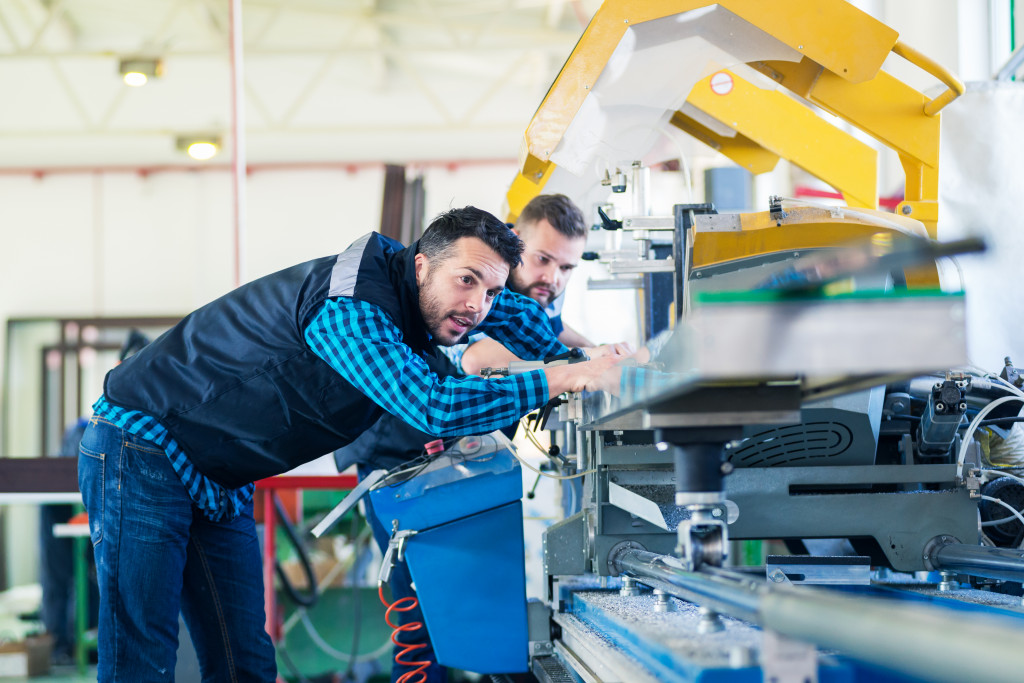Manufacturing heavy equipment is no small feat. There are a number of considerations to take into account, from product design and production costs to safety standards and environmental compliance. If you’re considering getting into the business of manufacturing heavy equipment, here are some key points to bear in mind.
Product Design
Designing effective heavy equipment requires an understanding of both mechanical engineering and industrial design. You need to create a product that meets its intended purpose while being safe and cost-effective. That means researching the market, looking at competitor models, assessing customer needs, and developing a prototype that fits the bill. Innovative designs can set you apart from competitors and make your products more attractive to buyers.
Furthermore, design considerations should also cover the production process. Developing a design that can be easily and efficiently assembled is essential to reducing costs and avoiding delays. You can also look into the latest production technologies, such as 3D printing, to further optimize efficiency.
Production Costs
Manufacturing anything involves significant costs in terms of materials, labor, energy consumption, etc., but this is especially true for heavy equipment as it typically requires more materials than smaller items like electronics or textiles. To keep costs down without compromising on quality or safety, consider using recycled materials or investing in automated production processes such as CNC milling or 3D printing.
This will help reduce waste and speed up production times while ensuring quality control measures are met every step of the way. After all, producing heavy equipment is no small task so it pays to be mindful of costs whenever possible.
Safety Standards
When it comes to manufacturing heavy equipment, there’s no room for cutting corners regarding safety standards—especially if you’re selling products overseas or in countries with stringent regulations on safety certification. Working with an experienced team of designers and engineers can help you ensure all relevant safety requirements are met so that your products meet global standards and pass any necessary inspections.
In addition, having the right equipment in place to assist your workers is key. For example, custom lathe steady rests can be used to securely hold large items in place during the manufacturing process, reducing the risks of workplace accidents and injuries. This is a critical factor to consider when planning the design and production of heavy equipment.
Environmental Compliance
Sustainability has become an increasingly important consideration for businesses across all industries in recent years and this is no less true for manufacturers of heavy equipment. Your production processes must meet local environmental regulations as well as international ones if you plan on selling your products abroad.
Working with experienced professionals who understand these regulations inside out can save you time—and money—in the long run by avoiding costly fines due to non-compliance issues later down the line.
Moreover, look for ways to reduce your energy consumption and waste production in order to reduce the impact of your business operations on the environment. Investing in renewable energy sources such as solar or wind power or utilizing water-efficient manufacturing processes can help you do just that while also saving money in the long run.
Product Testing

It is essential to test your products before they are released into the market. This involves rigorous testing of the product’s performance, lifespan, and safety features, among many other aspects. Utilizing a third-party testing facility can help ensure that your product meets all necessary standards and regulations to succeed in the market.
Moreover, it’s important to consider how you will support the product following its launch. Providing technical support, warranty information, and other services can ensure that your customers are satisfied with their purchase and remain loyal to your brand.
After-Sales Services
Providing good customer service is essential for developing a successful business. Manufacturing heavy equipment means providing after-sales services such as delivery, installation, and maintenance. This can be costly, but ensuring that your customers are satisfied with the purchased product is necessary.
Offering extended warranties or repair services can also help build customer goodwill and loyalty toward your brand. You can also look into offering additional services like training and troubleshooting advice to enhance your customer service further.
Final Thoughts
Manufacturing heavy equipment requires careful consideration regarding product design, production costs, safety standards, and environmental compliance among other things. Doing research on your target market, investing in innovative designs and automated processes where possible, and working with knowledgeable professionals who understand all relevant safety standards inside out are all essential steps when creating successful heavy equipment manufacturing businesses today. With proper planning and execution, these considerations should be manageable, allowing businesses to go forth confidently in their pursuits of success within this industry sector .

